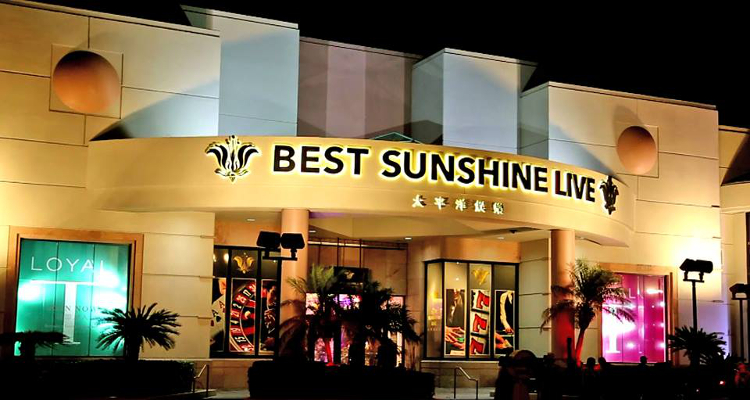In the Commonwealth Of The Northern Mariana Islands, casino operator Imperial Pacific International Holdings Limited has announced that it has not received any notification to suggest that it is being investigated by federal authorities in the United States regarding the volumes of cash flowing through its Best Sunshine Live operation.
The announcement follows a Monday report from the Bloomberg news service that suggested the Hong Kong-listed firm’s Saipan venue was “drawing the attention of law enforcement officials” while quoting an unnamed local legislator as stating he feared the island was fast becoming a “safe haven” for illicit Chinese money.
Imperial Pacific International Holdings secured an exclusive casino license for the island of Saipan in August of 2015 via its Best Sunshine International Limited subsidiary and subsequently spent $25 million to open the temporary Best Sunshine Live casino in a former shopping mall while beginning work on its nearby $500 million The Grand Mariana Casino And Hotel Resort, which is due to begin welcoming players in March.
The Best Sunshine Live training casino ended its first year in business last month by reporting a second highest monthly VIP chip turnover of $3.84 billion, which was only a 2.8% decrease from the all-time record of $3.95 billion seen in September. The report from Bloomberg alleged that each of the Garapan enterprise’s high-roller tables reported $170,000 in average daily takings during the first half of 2016 and that this was “almost eight times the average of Macau’s largest casinos”.
“The United States Treasury’s Financial Crimes Enforcement Network, which is responsible for alerting prosecutors and other authorities of suspicious financial flows, has taken notice of the activity at Best Sunshine Live, according to a person with knowledge of the matter,” read the story from Bloomberg. “Large-scale capital flight may be what accounts for the revenues at Best Sunshine Live, according to executives at three Macau gambling promoters who spoke on the condition they not be identified bad-mouthing a competitor. The numbers are simply impossible if they are not inflated or facilitating money-laundering, they said.”
However, Imperial Pacific International Holdings Limited declared in a Tuesday filing with the Hong Kong Stock Exchange that these “allegations are false” and that it had made “all reasonable inquiries” with law enforcement officials. It further stated that it had implemented “stringent internal control measures” and has “fully applied an anti-money laundering system to ensure compliance with all applicable United States laws and regulations”.
“Imperial Pacific International Holdings Limited has noted certain media articles on November 14, 2016, stating that United States regulatory authority was investigating into the company’s Best Sunshine Live casino in Saipan,” read the filing from Imperial Pacific International Holdings Limited. “According to the group’s internal log data, since 2016 the visitor headcounts at 10pm of Best Sunshine Live casino have never been below 300. As there are only 38 gaming tables in the casino and each table is able to serve five to six customers at the same time, our service capacity has saturated. Each night around 100 customers could not be arranged with a seat and had to queue or stand to participate.”
The statement from Imperial Pacific International Holdings Limited further revealed that it was “seeking legal advice” and would “reserve the right to pursue legal actions against [any] unfounded report”.
“I’ve heard every question that you have in your mind,” Mark Brown, Chief Executive Officer for Imperial Pacific International Holdings Limited, told Bloomberg. “All my guys, my friends in Macau, say this is bullshit. We are very transparent. We don’t want to do anything to break the law.”
According to a recent report from brokerage and investments firm Credit Lyonnais Securities Asia, Chinese nationals account for over 80% of Best Sunshine International Limited’s gambling revenues in Saipan, which is about the same ratio as reported by casinos in Macau but much higher than the 60% from venues in South Korea or the 25% seen in the Philippines.


